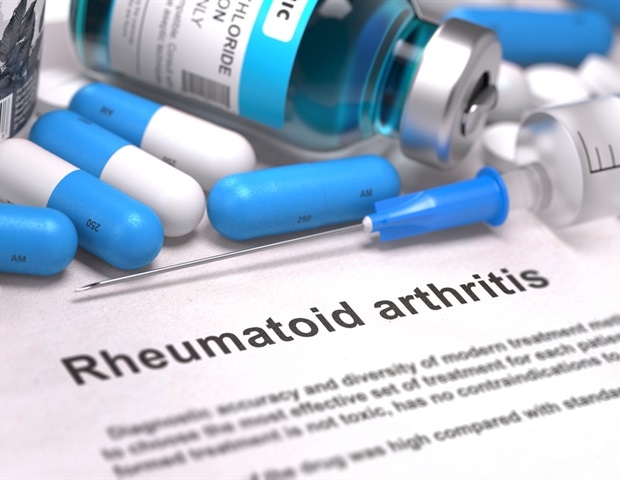[ad_1]

Scientists have developed a peptide that binds to the protein calprotectin, a marker of main inflammatory issues, and proven that it’s appropriate for diagnostic assessments. Using artificial peptides for sensing illness markers is of nice curiosity as they’re extra exact, sturdy, and cheaper than antibodies generally utilized in diagnostic assessments.
Widespread inflammatory issues equivalent to ulcerative colitis and Crohn’s illness might be identified or monitored by measuring the protein calprotectin in stool samples, whereas serum ranges of calprotectin might be used to watch the irritation standing in rheumatoid arthritis. Calprotectin concentrations in affected person samples are sometimes decided utilizing antibodies that bind and detect the protein, e.g. in lateral circulate assays just like the now all-too-familiar residence COVID-19 check kits.
However there’s a downside with antibody-based calprotectin assays: the outcomes can differ relying on the kind of antibody and assay used. This occurs as a result of antibodies might bind to totally different websites on the protein, or won’t have a uniform composition. The antibodies can even turn into inactivated over time attributable to unfolding or precipitation.
One potential resolution is to make use of peptides as a substitute of antibodies to detect and measure illness markers like calprotectin. Peptides are sequences of as much as 50 amino acids that may bind to proteins with excessive affinity and selectivity, however, in contrast to antibodies, they are often chemically produced with excessive purity and homogeneity. As well as, peptides are steady over time, are cheaper to supply than antibodies and with decrease inter-batch variability, and they are often hooked up to a selected location on a floor, considerably simplifying diagnostic assay improvement as a result of it permits for a extra correct and managed method of detecting biomarkers.
With this concept, Christian Gerhold, CTO of the diagnostics firm BÜHLMANN, labored with the group of Professor Christian Heinis at EPFL to develop human calprotectin ligands based mostly on peptides. From a library of greater than 500 billion totally different peptides, Cristina Diaz-Perlas, a postdoc in Heinis’s group, remoted a number of binders of calprotectin, and confirmed that the peptides are suited to calprotectin quantification in simplified lateral circulate assays. The most effective peptide had a dissociation fixed of 26 nM – a measure of how tightly it binds calprotectin, making it a great candidate for diagnostic assessments.
The peptide not solely binds to a big floor area of calprotectin but in addition to a selected type of calprotectin that’s the related species in affected person samples. Below the steering of Benjamin Ricken at BÜHLMANN, the peptide was lastly examined in professionally assembled lateral circulate cassettes and located that it was suited to correct detection and quantification of calprotectin. In a proof-of-concept research, this setup was used to quantify the focus of calprotectin in serum obtained from affected person blood samples.
The peptide developed is the primary artificial affinity reagent that might be generated towards the biomarker calprotectin.
The EPFL and BÜHLMANN groups are presently performing extra assessments with the calprotectin-specific peptide to translate the assay right into a product that may carry the diagnostic energy of this more and more vital biomarker to a brand new degree to assist sufferers affected by inflammatory illnesses.”
Professor Christian Heinis, EPFL
Christian Gerhold provides: “This collaboration drastically benefited from BÜHLMANN’s knowhow to supply and deal with the biomarker, and experience of the EPFL group to generate and display massive combinatorial libraries of peptides by phage show.”
Supply:
Journal reference:
Díaz-Perlas, C., et al. (2023) Excessive-affinity peptides developed towards calprotectin and their utility as artificial ligands in diagnostic assays. Nature Communications. doi.org/10.1038/s41467-023-38075-7.
[ad_2]
